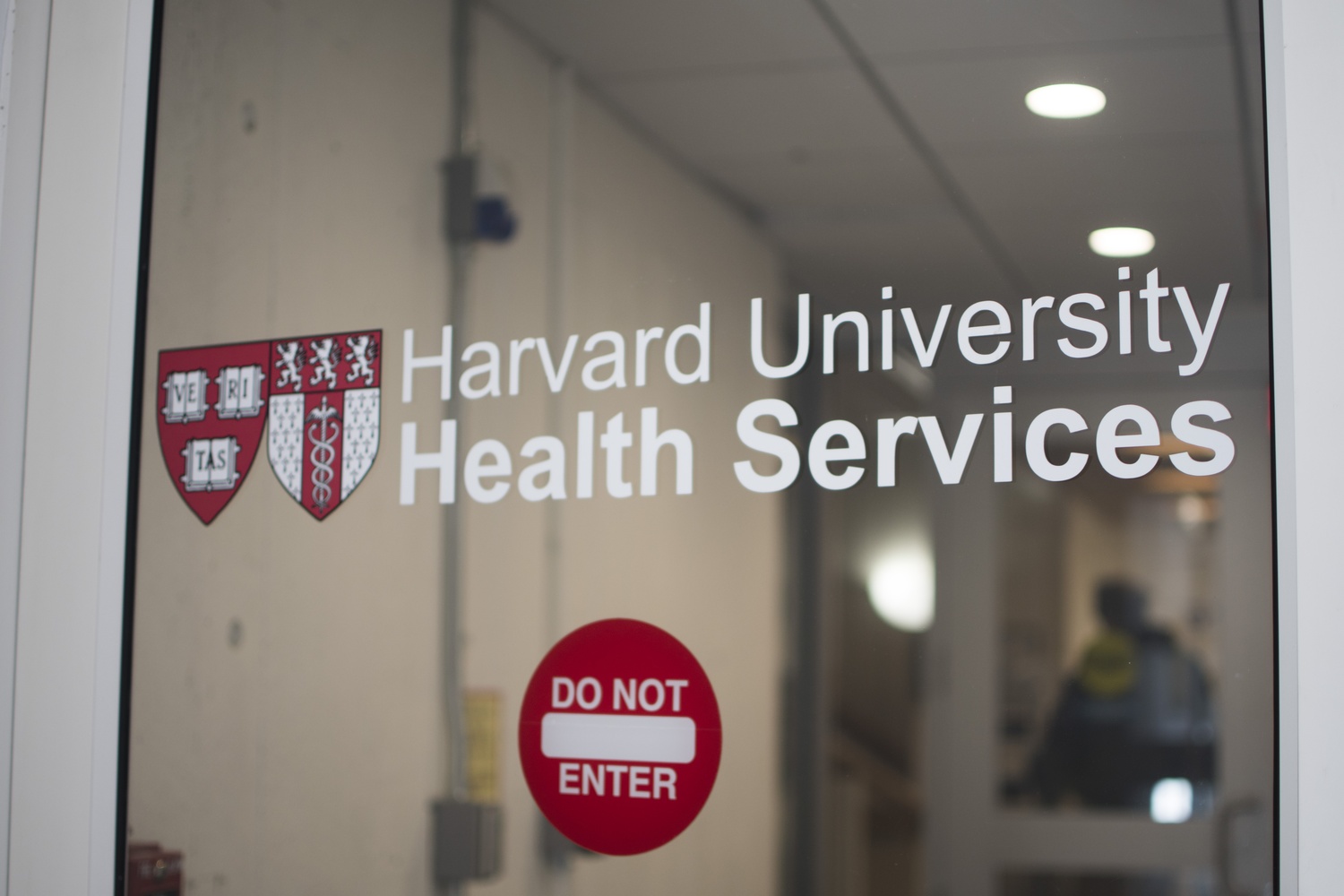
News
Harvard Researchers Develop AI-Driven Framework To Study Social Interactions, A Step Forward for Autism Research

News
Harvard Innovation Labs Announces 25 President’s Innovation Challenge Finalists

News
Graduate Student Council To Vote on Meeting Attendance Policy

News
Pop Hits and Politics: At Yardfest, Students Dance to Bedingfield and a Student Band Condemns Trump

News
Billionaire Investor Gerald Chan Under Scrutiny for Neglect of Historic Harvard Square Theater
Despite Public Concern at High Rate of Flu, HUHS is Not Worried

While some doctors have professed alarm at a harsh strain of the influenza virus going around in this year’s flu season, which has so far caused at least 30 pediatric deaths across the country, Harvard University Health Services representatives say they have not seen an abnormally high rate of flu among Harvard students.
“Although HUHS has not received indications to-date that Harvard University has experienced an atypical number of flu cases this winter, the number of reported cases in Massachusetts and across the country have begun to increase, as is customary for this time of year,” HUHS spokesperson Michael Perry wrote in a written statement.
Still, Perry noted students should take measures to minimize their risk of contracting a virus.
“We would like to remind students of simple, preventive measures that can help lower your risk of getting sick during flu season,” Perry wrote. “To ensure the health and safety of all, please practice good hand washing, avoid contact with those who are sick, and if you haven’t yet done so, get vaccinated.”
Anthony S. Fauci, director of the National Institute of Allergy and Infectious Diseases, said this year’s most predominant influenza strain is H3N2, a strain notorious for aggressive symptoms.
“It was introduced in 1968 and over the years we've had H3N2 or an H1N1, so this isn't brand new,” Fauci said. “When you think about the most aggressive and most difficult of the strains, historically H3N2 is generally a bad actor.”
Pritish K. Tosh, an infectious disease specialist at the Mayo Clinic, said that though other flu seasons featuring H3N2 have been equally infectious, “this one happens to be more severe. The vaccine does not seem to be as effective.”
HUHS routinely encourages students and staff to get the annual flu shot. They provide the vaccine to Harvard students free of charge during the fall semester in House dining halls and other satellite clinics.
But experts say this year’s vaccine may be less effective than vaccines of years past.
“The vaccine this year has not had great efficacy,” Tosh said. “The vaccine efficacy was close to 10 percent.”
Vanderbilt University Professor William Schaffner, who studies immunization policy and infectious diseases, said the vaccines effectiveness can be compromised because the virus can mutate.
“This is one of the major challenges in trying to prevent these influenza infections and is at the root of why the vaccine has to be reformulated essentially on an annual basis,” Schaffner said.
Schaffner warned that seemingly mild flu symptoms can quickly escalate.
“Influenza, it’s a serious respiratory infection that can take even a young healthy person and put them in the emergency department within 24 hours,” said Schaffner.
While doctors encourage patients to exercise caution, not all are surprised by the 30 pediatric deaths the flu has caused this season. Fauci added that college-aged students are not a high-risk population.
“The good news is that people within the age bracket of college students rarely have serious complications,” Fauci said.
Still, Perry said getting the flu vaccine is a good idea. “Some experts suggest that those who receive the vaccine tend to have a milder illness even if they do get the flu,” he said.
In his email, Perry encouraged students to still receive the vaccine if they have not already.
“Flu vaccines are still available, and students can make an appointment to receive one through the HUHS patient portal or by contacting HUHS,” Perry wrote.
—Staff writer Ahab Chopra can be reached at ahab.chopra@thecrimson.com. Follow him on Twitter @ahab_chopra
—Staff writer Ashley M. Cooper can be reached at ashley.cooper@thecrimson.com.
Want to keep up with breaking news? Subscribe to our email newsletter.
From Our Advertisers

Over 300+ courses at prestigious colleges and universities in the US and UK are at your disposal.

Where you should have gotten your protein since 1998.

Serve as a proctor for Harvard Summer School (HSS) students, either in the Secondary School Program (SSP), General Program (GP), or Pre-College Program.

With an increasingly competitive Law School admissions process, it's important to understand what makes an applicant stand out.

Welcome to your one-stop gifting destination for men and women—it's like your neighborhood holiday shop, but way cooler.

HUSL seeks to create and empower a community of students who are seeking pathways into the Sports Business Industry.
